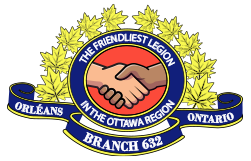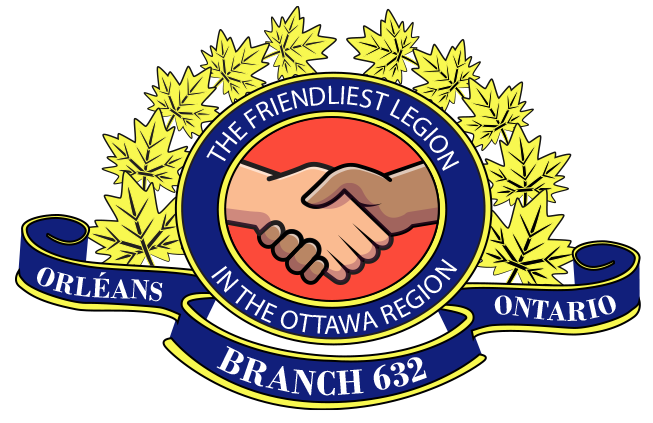Poppy Campaign
Information on what the campaign is, where the funds are used and spent.
Remembrance
What is the Poppy Campaign?
This year the Poppy Campaign will begin of Friday 27 October. The Poppy Campaign is very much a local initiative, and the Branch 632, will be seeking donations at malls, stores and schools across Orléans. Donations collected during the Poppy Campaign are held in Trust at the branch level to directly support Veterans and their families within their community and to help ensure Canadians ‘never forget’. Learn more about how your donations help Veterans.
In the days leading up to November 11, Poppies can be seen in every corner of this great country. This show of support and display of remembrance would not be possible without the efforts of thousands of Legionnaires who volunteer to distribute Poppies to the community through schools, community organizations and local businesses. We are so grateful for their efforts, and for the support of the many partners, local and national, who welcome Legion volunteers and Poppy boxes into their locations.
Where is the money spent?
What can’t Poppy Donations be used for?
There are a large number of things that can’t be funded from Poppy Donations and some examples are:

